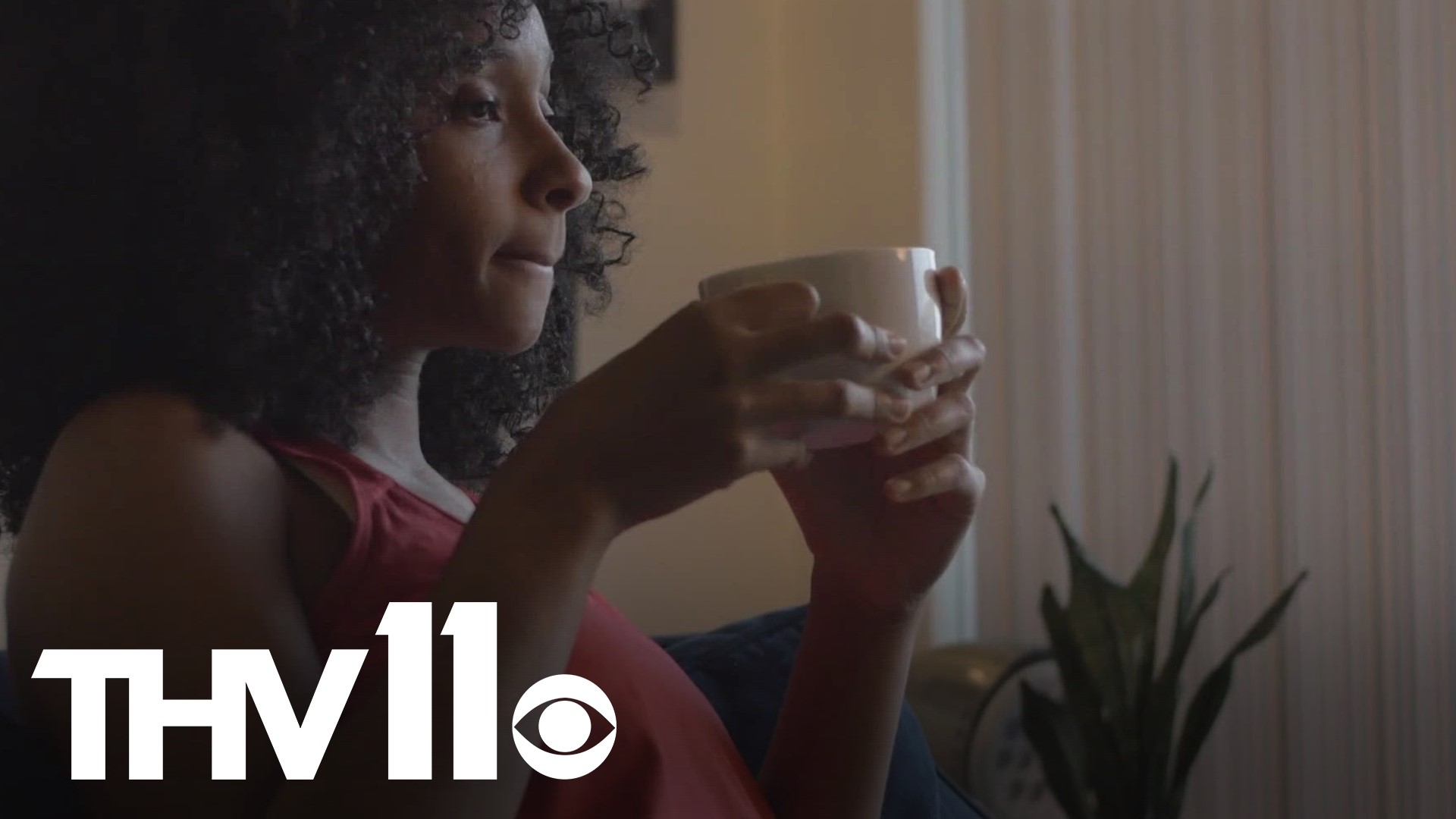LITTLE ROCK, Ark. — You may have heard the saying, "prioritize your mental health," but how exactly do you prioritize something that looks so different for everyone?
A recent study that was conducted by New York University shows how depression may be increasingly difficult to diagnose for Black women.
The study analyzed data from 227 Black women with children.
As part of a larger study that looked into high blood pressure, researchers screened the women for depression.
What the study found is that Black women reported symptoms of sleep disturbances, self-criticism, and irritability, rather than typical depression symptoms like feelings of hopelessness or depressed mood.
"Based on our findings, it's possible that health care providers may miss depression symptoms in Black women, resulting in underdiagnosis and undertreatment," said Nicole Perez, Ph.D., RN,
She's a psychiatric-mental health nurse practitioner and a postdoctoral associate at NYU Rory Meyers College of Nursing. She's also the lead author of the study that was published in Nursing Research.
The study also found that Black women with signs of depression also reported having a low sex drive, feelings of self-hate, and self-blame— rather than those more common symptoms.
This issue has not only been happening at the national level but it has also been seen by NYU researchers, and it has affected Black women in Arkansas too.
We spoke with local women in Arkansas who experienced changes within themselves, not realizing those changes were signs of depression.
Nakala Jones is a mom of five who just completed nursing school and has also been running her own candle business.
"The process is kind of long, it's not just the wax, the wick, there you go. It has to be like chemistry in there and the right fragrance," Jones described.
Starting this candle business was something she created that brought her peace and joy.
It also helped bring Jones out of postpartum depression.
"Excessive crying, distancing myself from family, wanting to be alone," were all symptoms Jones said she faced.
As things got worse, Jones decided she should seek help.
"The lack of sleep, the lack of eating, the lack of concentration, my mood is up and down, my excessive crying." Jones went on to say, "I have to do something about this because it's making me and my family very uncomfortable."
Though those symptoms align with postpartum depression, they're also symptoms that doctors say they've been seeing more in Black women outside of the traditional postpartum window.
This finding has led researchers to believe that symptoms like these are more common for Black women with depression in general.
Mariah Sumlin is a licensed counselor in Little Rock who explained that Black women in particular should pay closer attention when things don't feel normal.
"With depressive symptoms, they can present in all types of ways. High-functioning depression is very common not only among African American women but among African American adolescents as well," she described.
Sumlin also said that because Black women may be more "high-functioning," it could cause depression to fly under the radar.
"On the outside, they're doing great, until you talk to them, or they open up about those experiences, you'll never know," she added.
Olympia Atkinson is a mother, a teacher, and a Veteran who shared how she also missed the early signs of depression.
Back in 2017, she was diagnosed with depression and bipolar disorder.
"It was untreated, and I didn't know. The activities, and the training we endure as soldiers, can be stressful. It can affect you mentally," she said.
Those near and dear to Atkinson recognized something was different before she even realized it herself.
"I would have highs and lows. I would maybe react impulsively or become maybe aggressive towards family and friends," Atkinson described.
She credits her family and friends, for helping her get the right treatment and getting her back on track.
"I'm so lucky and blessed that I had my mom who at the time became my caregiver because I couldn't take care of my kids," she said.
Seeking the proper care and having an outlet helped get both Jones and Atkinson to a better place.
For Jones, she poured herself into her candle business. For Atkinson, her outlet was writing.
"I wrote jokes, I wrote poetry, I wrote music, and it's always been something I could depend on. When I was in the mental health facility, I remember asking them for paper and a pencil," said Atkinson.
Though it's not just about seeking treatment, Sumlin said another important factor in getting Black women the help they need is an increased understanding of the uncommon symptoms that they face.
"One thing we practice in therapy is actively listening and interpreting it in the way they're saying it. Not in the way you're wanting them to say it. When you do that, you're able to better understand that person's experience uniquely for them," she said.
Therapists are now urging increased studies specifically focused on Black women to help expand access to care.
"If you don't know the signs, you don't know what to look for," Jones concluded.
For more information on the study done by New York University, please click here.

